Abstract
Human subjects, mostly between 11 and 16 yr old, matched to sample for points that were exchangeable for money. An audit response was defined as a response maintained by allowing a subject access to an existing score on his own (self audit) or a coactor's (coactor audit) performance. In Experiment I, changes from non-social procedures (no coactor) to social procedures (coactor present) increased self and coactor audits. Since both types of audits occurred at about the same rates during cooperation and parallel work procedures, the increases did not depend on the subjects' response interactions. Although Experiment I did not demonstrate that subjects were comparing scores, the frequent occurrence of each kind of audit within a brief time period (interpersonal audit) did indicate that it was reinforcing to have both scores at the same time. These interpersonal audits suggested that the coactor's score increased self audits during social procedures. Experiment II supported this notion: relative to a non-social procedure, self audits increased more during a parallel work procedure when the coactor's score was accessible than when it was not accessible. Thus, increases in other behaviors that occur in the presence of a coactor, i.e., social facilitation, may also result from or be increased by providing a coactor's score.
Full text
PDF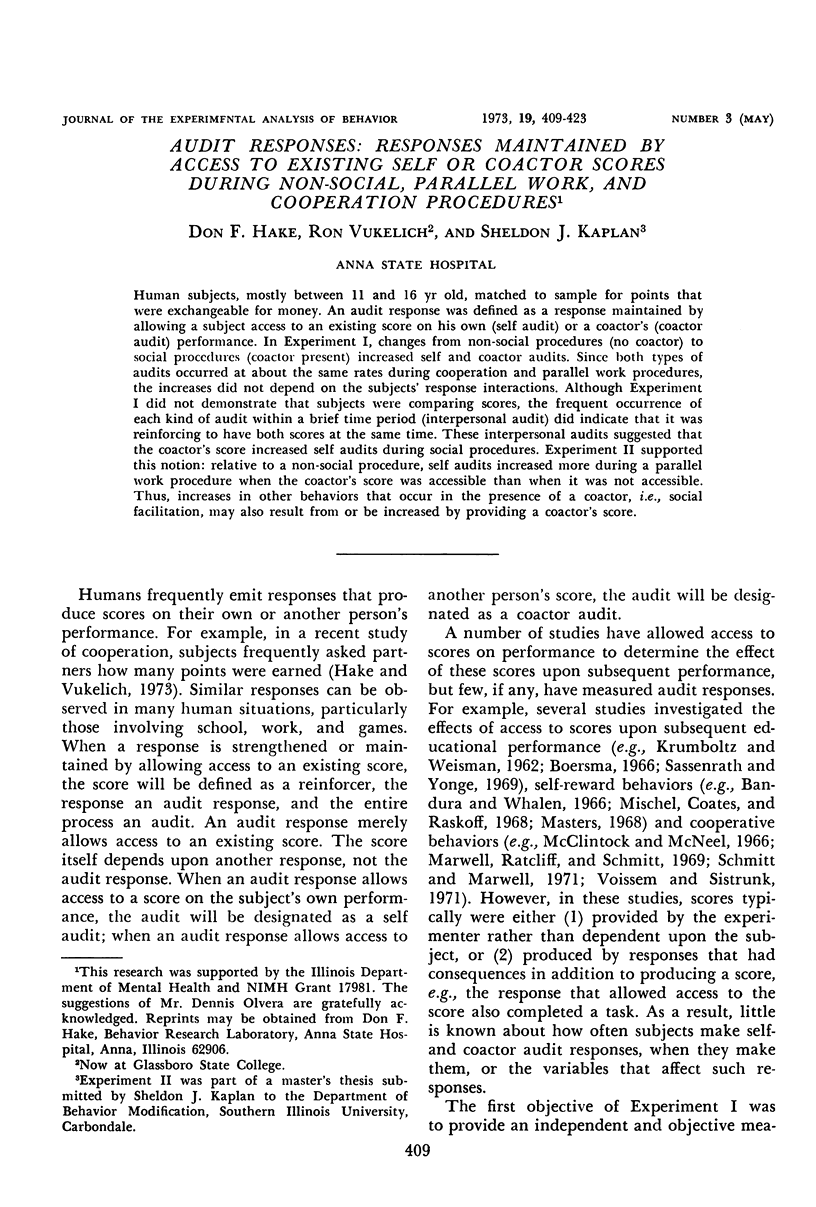
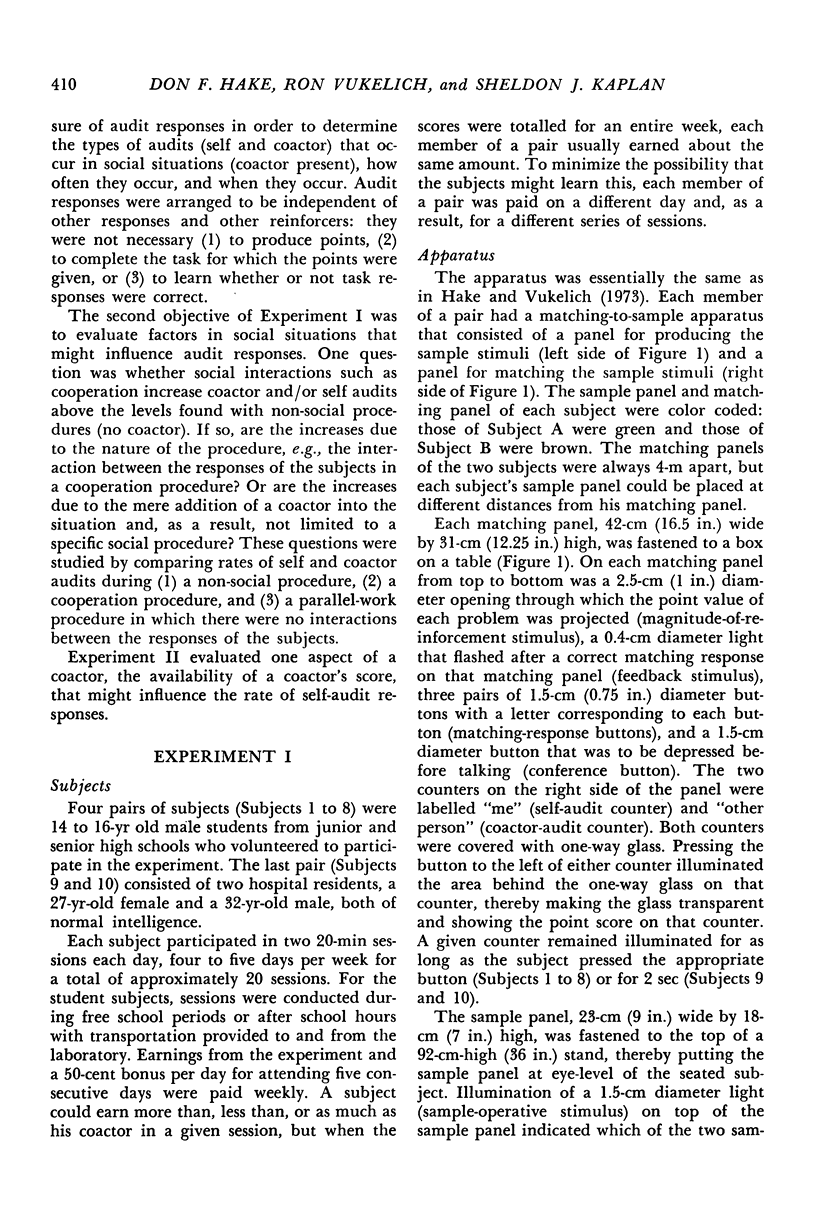
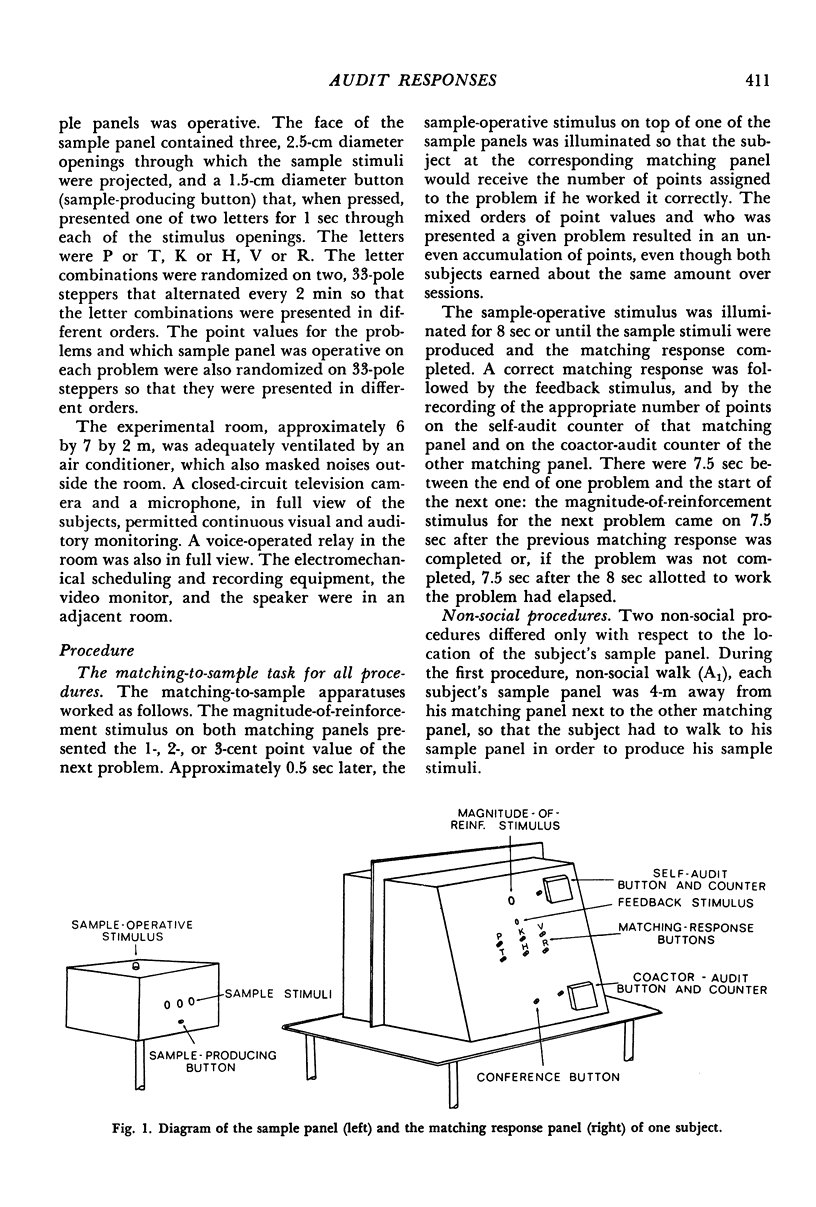
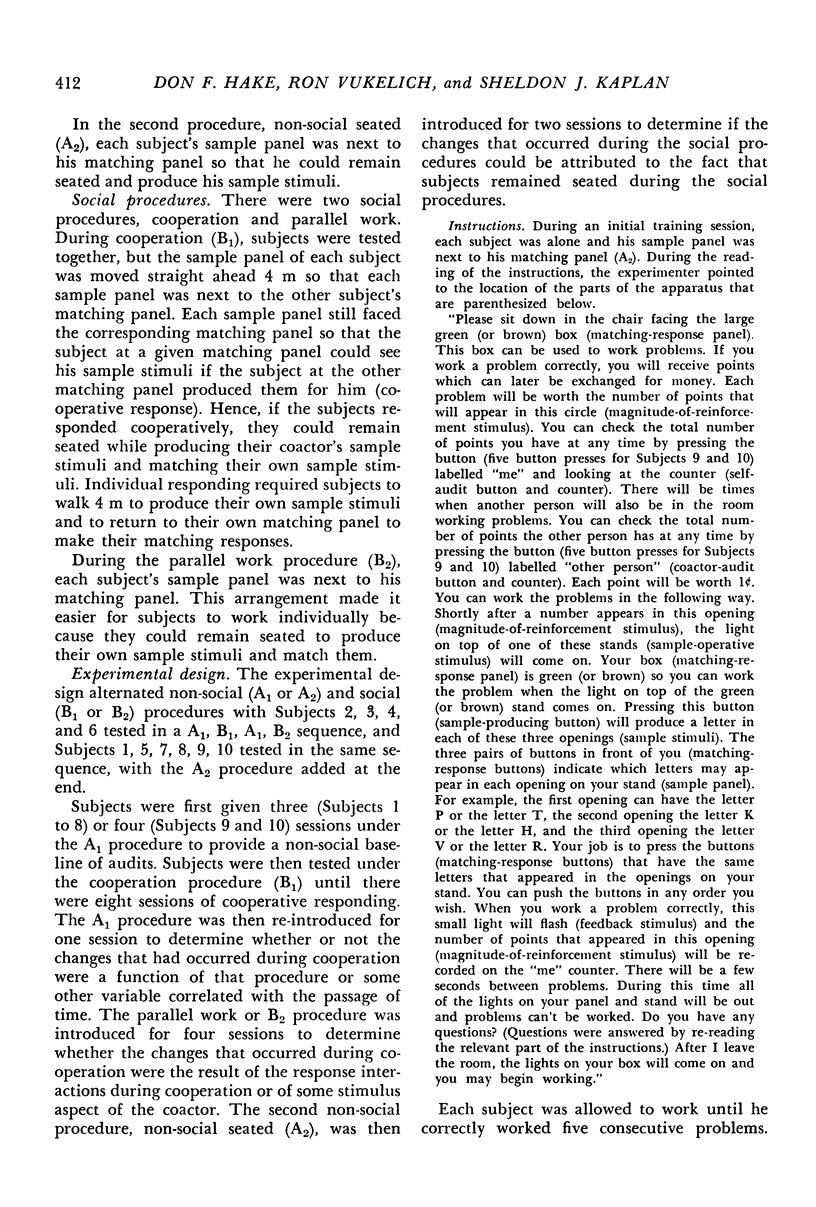
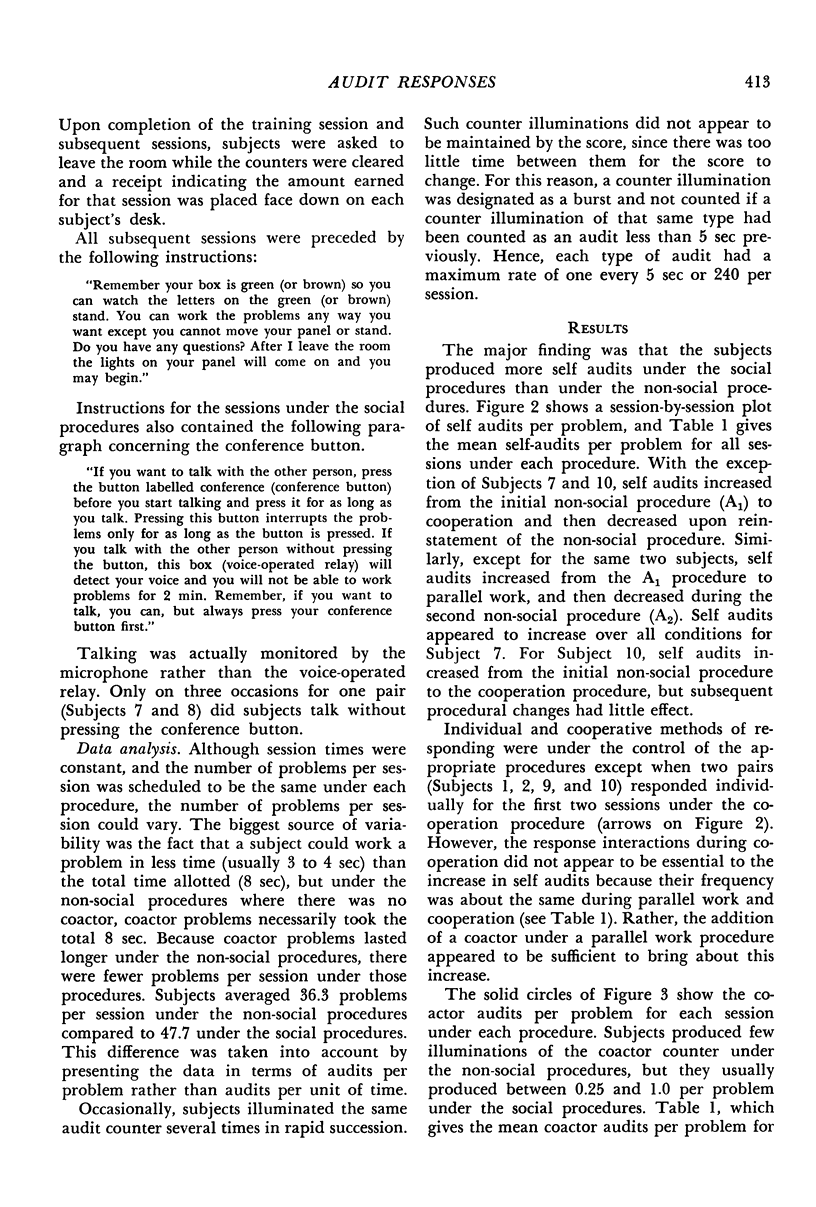
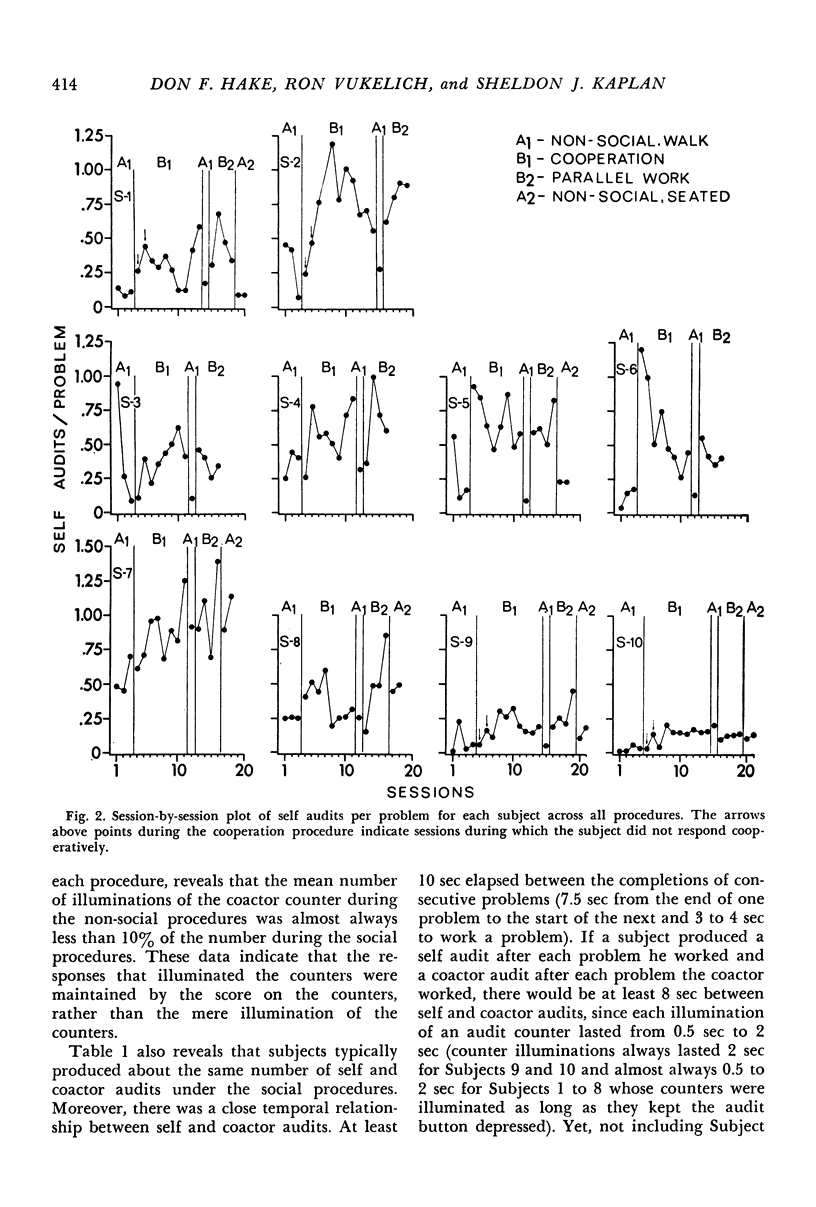
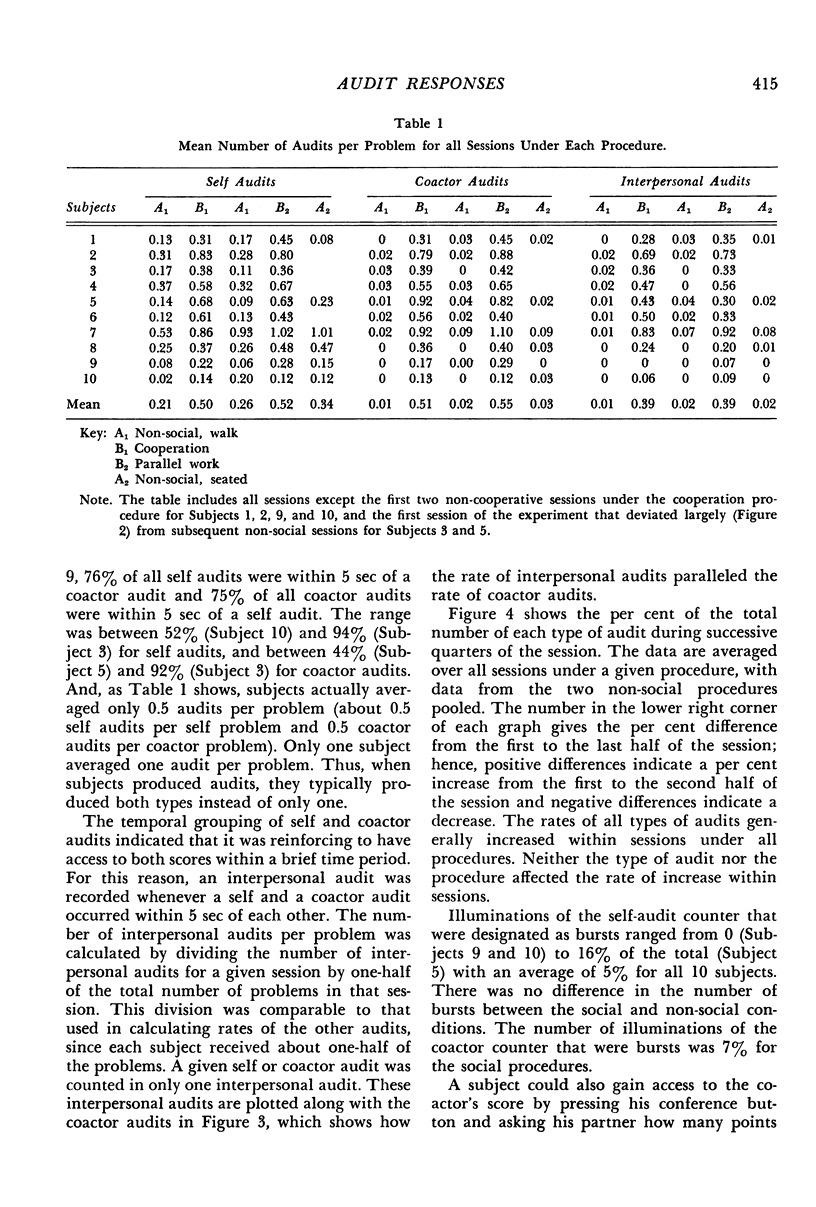
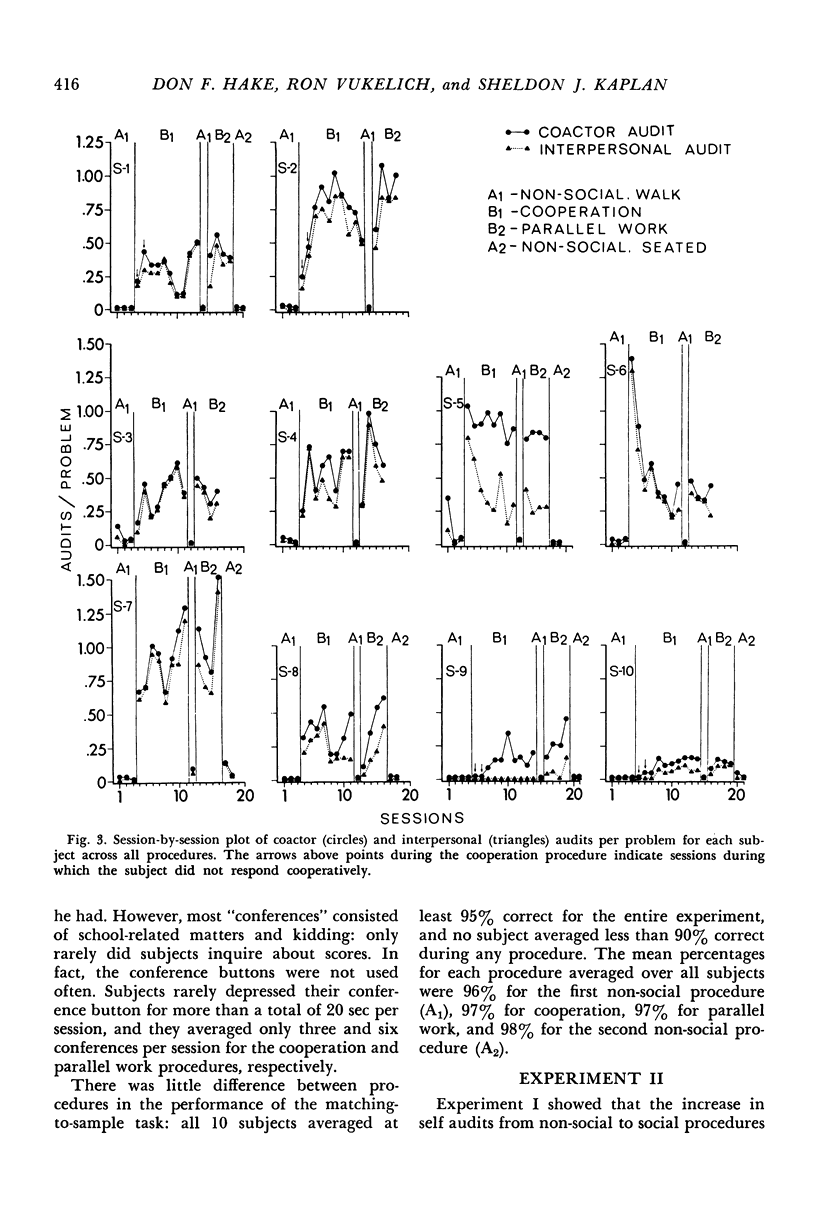
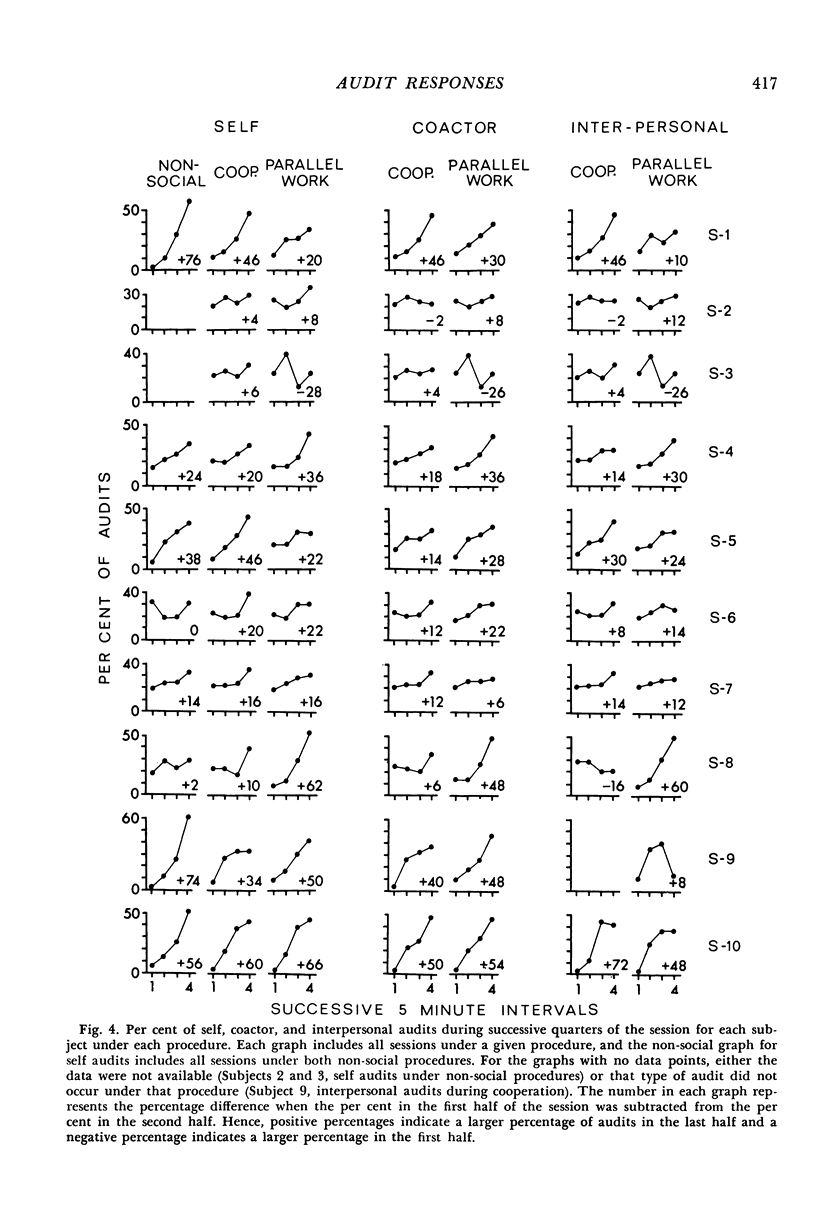
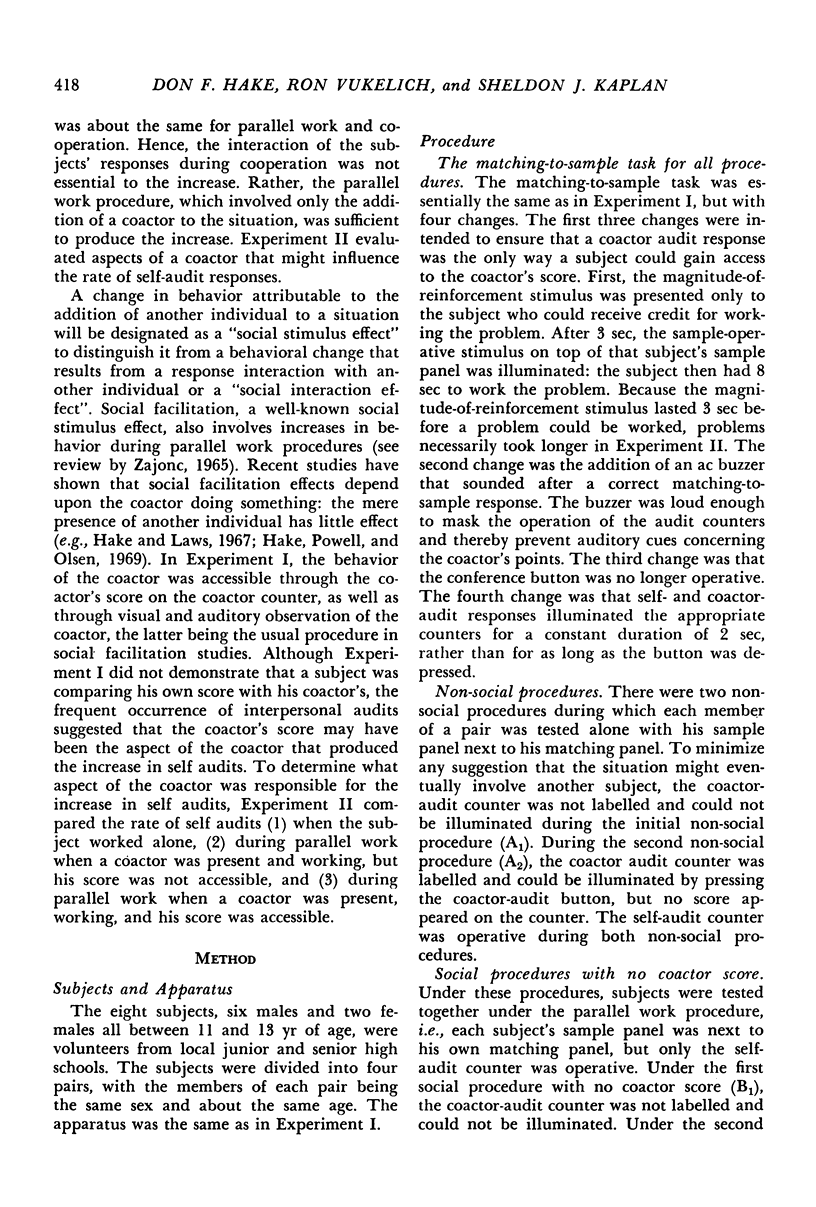
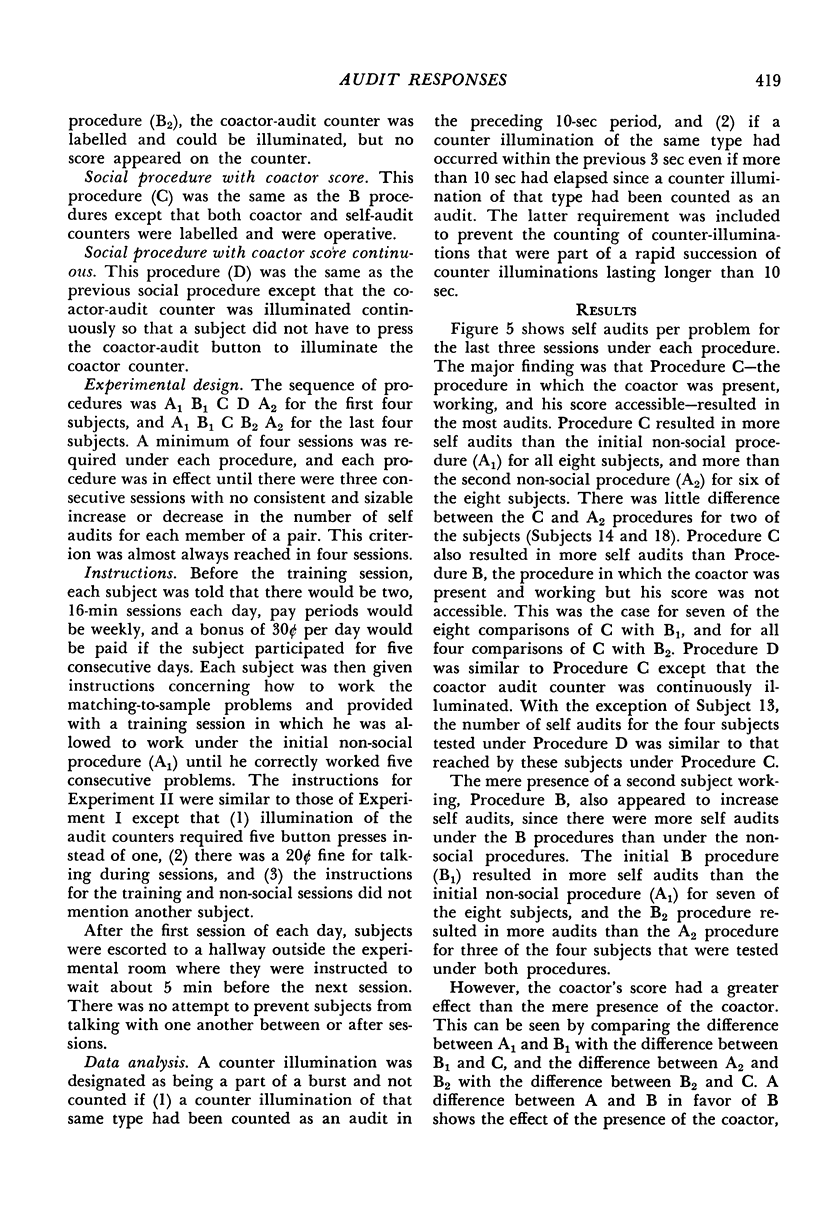
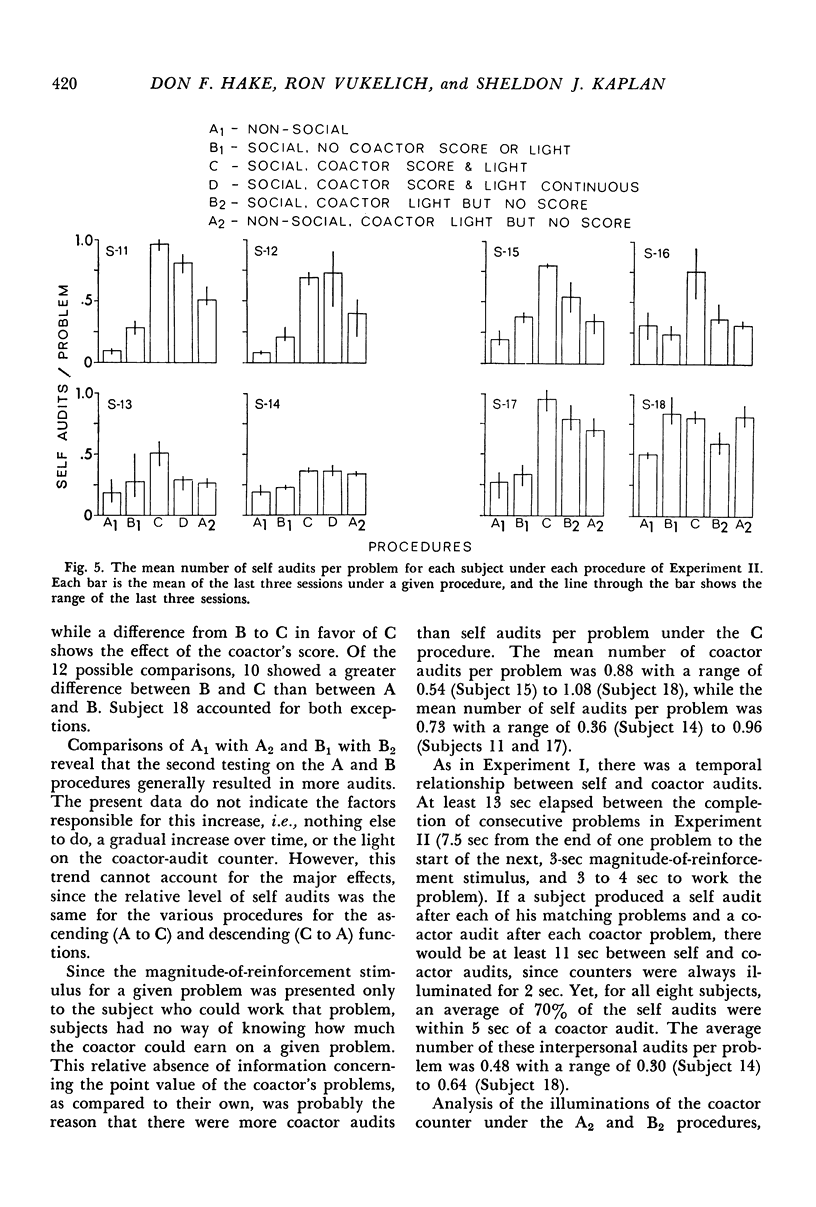
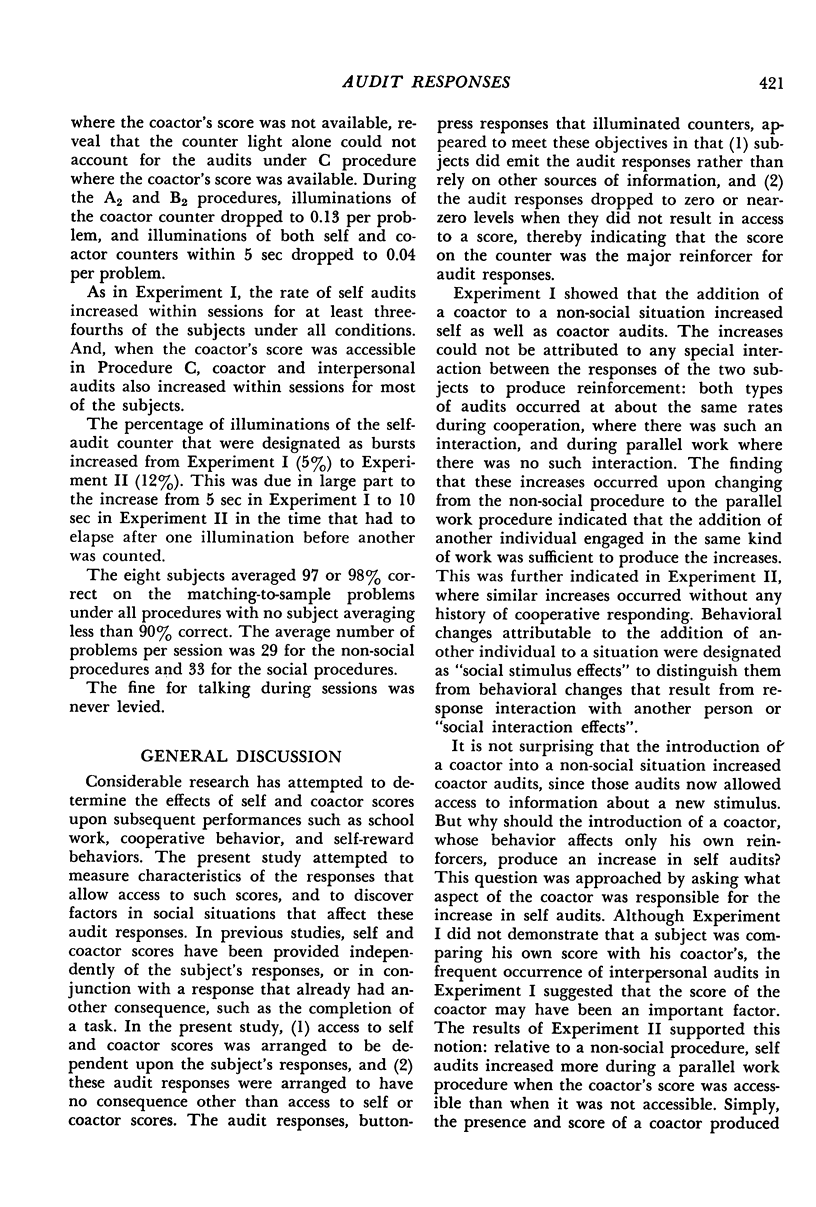
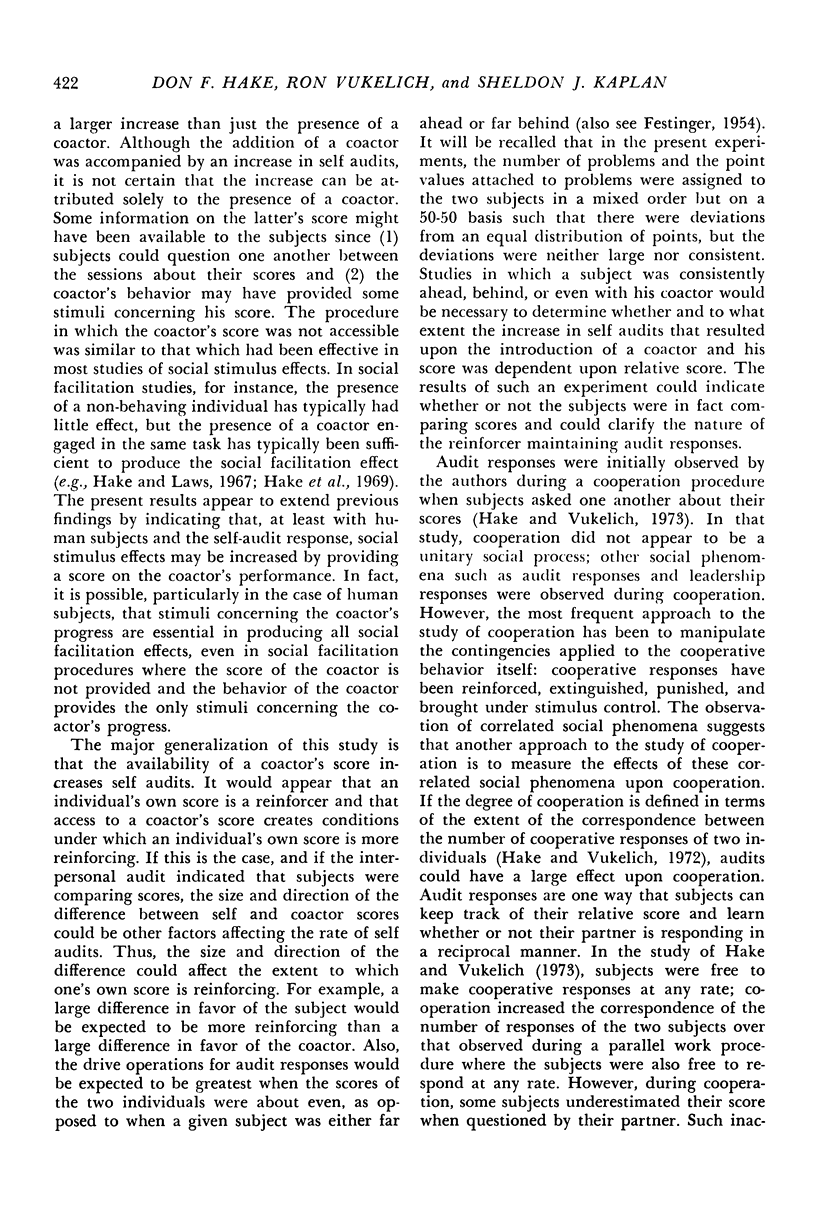
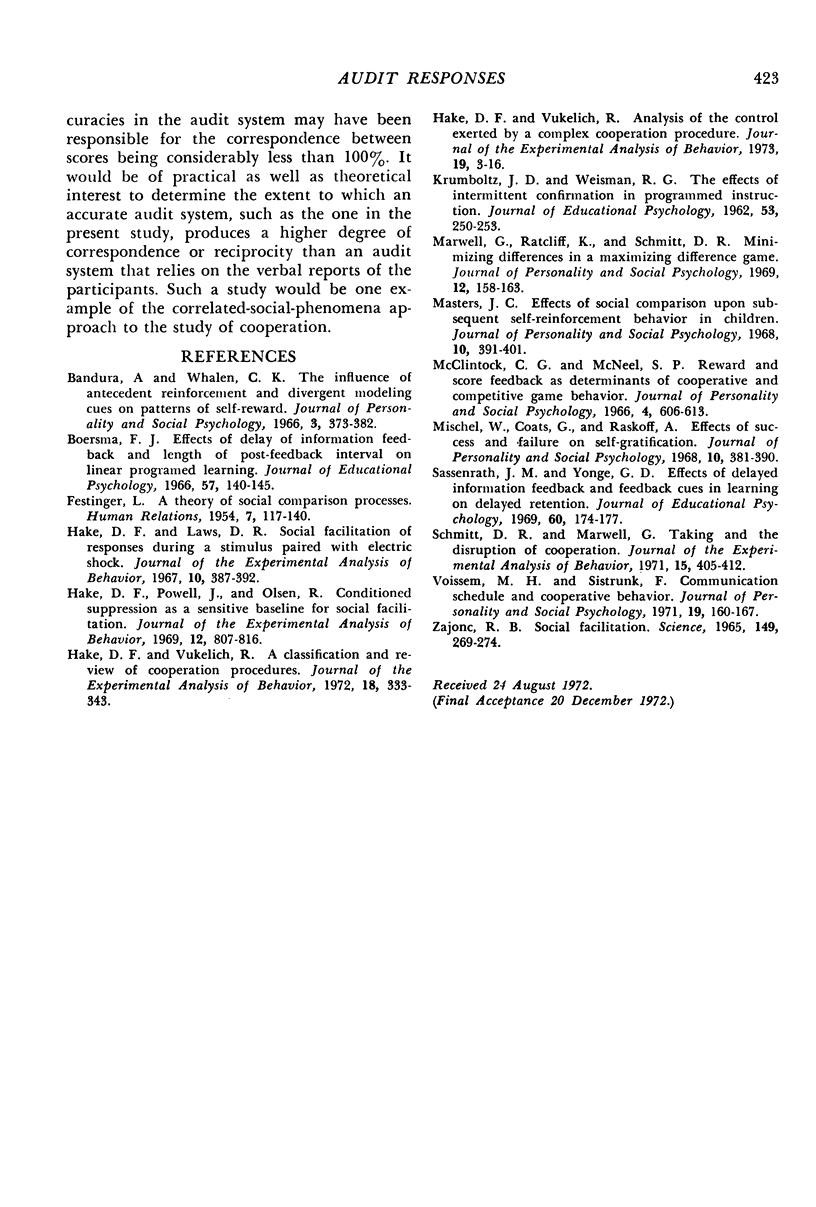
Selected References
These references are in PubMed. This may not be the complete list of references from this article.
- Bandura A., Whalen C. K. The influence of antecedent reinforcement and divergent modeling cues on patterns of self-reward. J Pers Soc Psychol. 1966 Apr;3(4):373–382. doi: 10.1037/h0023022. [DOI] [PubMed] [Google Scholar]
- Boersma F. J. Effects of delay of information feedback and length of postfeedback interval on linear programed learning. J Educ Psychol. 1966 Jun;57(3):140–145. doi: 10.1037/h0023405. [DOI] [PubMed] [Google Scholar]
- Hake D. F., Laws D. R. Social facilitation of responses during a stimulus paired with electric shock. J Exp Anal Behav. 1967 Jul;10(4):387–392. doi: 10.1901/jeab.1967.10-387. [DOI] [PMC free article] [PubMed] [Google Scholar]
- Hake D. F., Powell J., Olsen R. Conditioned suppression as a sensitive baseline for social facilitation. J Exp Anal Behav. 1969 Sep;12(5):807–816. doi: 10.1901/jeab.1969.12-807. [DOI] [PMC free article] [PubMed] [Google Scholar]
- Hake D. F., Vukelich R. A classification and review of cooperation procedures. J Exp Anal Behav. 1972 Sep;18(2):333–343. doi: 10.1901/jeab.1972.18-333. [DOI] [PMC free article] [PubMed] [Google Scholar]
- Hake D. F., Vukelich R. Analysis of the control exerted by a complex cooperation procedure. J Exp Anal Behav. 1973 Jan;19(1):3–16. doi: 10.1901/jeab.1973.19-3. [DOI] [PMC free article] [PubMed] [Google Scholar]
- Schmitt D. R., Marwell G. Taking and the disruption of cooperation. J Exp Anal Behav. 1971 May;15(3):405–412. doi: 10.1901/jeab.1971.15-405. [DOI] [PMC free article] [PubMed] [Google Scholar]
- ZAJONC R. B. SOCIAL FACILITATION. Science. 1965 Jul 16;149(3681):269–274. doi: 10.1126/science.149.3681.269. [DOI] [PubMed] [Google Scholar]


